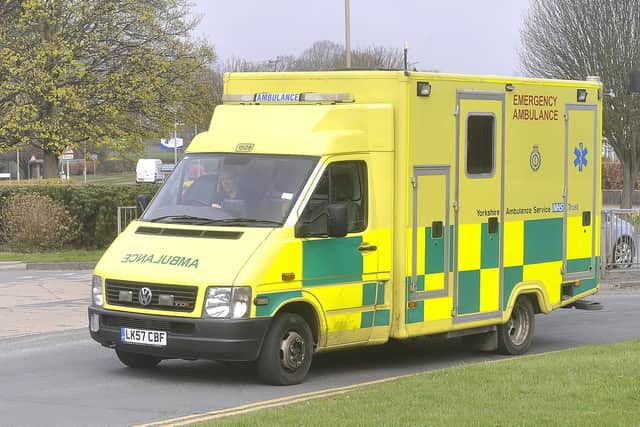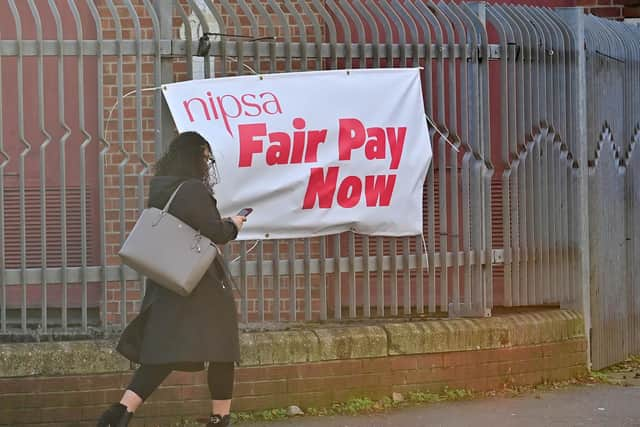‘Life-threatening’ calls only for ambulances during strike action on Thursday
and live on Freeview channel 276
The warning comes as staff at hospitals and other health facilities across Northern Ireland stage another stoppage as the row over pay, mileage allowances and staffing levels continues.
While the strike action is taking place, ambulance workers belonging to the Unison will respond only to the highest priority “life and limb” emergency calls, the union said.
Advertisement
Hide AdAdvertisement
Hide AdIn a statement on Wednesday, the NIAS said it has engaged with trade union representatives to identify services and roles that will be exempt from strike action to ensure that a response continues to the most clinically urgent patients.


However, the statement said they anticipate challenges throughout Thursday and that they plan to maintain the safety of those patients whose need is greatest.
“The impact of the action will be felt most on those patients calling NIAS whose need is less clinically urgent. We anticipate that there will be lengthy delays in responding to these categories of calls,” a spokesman said.
“To ensure that we maintain the levels of cover required to respond to the most urgent calls, we would ask the public to call us only in life-threatening emergencies such as cardiac arrest, loss of consciousness, breathing difficulties, severe bleeding and others.
Advertisement
Hide AdAdvertisement
Hide Ad“We would also ask that, having placed a 999 call, the public should resist calling back to check on the arrival time of the ambulance.


“We stress that ambulances will still be available, however, they will be limited and we will prioritise patients with life-threatening injuries or illnesses.
“Callers should not hesitate to call 999 in the case of serious illness or injury, but other callers should consider other options including self-care, seeking GP or pharmacy advice or presenting themselves to Emergency Departments.”
The spokesman added: “NIAS respects the right of our staff who are union members to participate in industrial action.
Advertisement
Hide AdAdvertisement
Hide Ad“This action is being taken in relation to the national issues of pay and conditions and is a matter for the government and trade unions.”
With huge swathes of the health service likely to be affected, union chiefs have been meeting health trust bosses for discussions around exactly what services will be affected and to what extent, as the long-running dispute over pay continues.
Nipsa assistant secretary Terry Thomas insisted that the strike action has been forced on its members.
“It is a disgrace that Nipsa health service members are again forced to take industrial action... to again reinforce their issues around pay, safe staffing and travel reimbursement,” he said.
Advertisement
Hide AdAdvertisement
Hide Ad“Nipsa along with our sister trade unions in health continue to stress that the current industrial action is forced upon members, and the inaction by politicians and government only serves to do further disservice to both the health service and the most vulnerable citizens in our society”.
Unite general secretary Sharon Graham said: “Unite’s members have voted overwhelmingly for strike action and rejected the Government’s derisory pay offer, which is a real terms pay cut,” she said.
“These strikes are being taken as an absolute last resort. Our members are seeing the NHS eroded before their eyes and patients’ lives are being placed at risk due to chronic underfunding”.